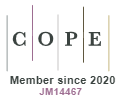Urban Sustainability by Analysis of Renewable Technologies in the Public Transport of the City of Curitiba
DOI:
https://doi.org/10.5585/geas.v6i2.883Keywords:
Hybrid Bus, GHG Emissions, Collective Transportation.Abstract
To work sustainability issues in the urban environment is one of the great challenges in current. One of the ways to reach goals of this size is through the insertion of sustainable technologies in the public transportation sector. Examples include the use of biofuel instead of fossil fuels and the adoption of hybrid electric buses. Such replacements have been carried out in the collective transportation of the city of Curitiba, Paraná, which has been a pioneer in this type of management and has 1.7 vehicles per inhabitant. Therefore, the proposal of the article is to question the extent to which these actions contribute to the sustainability of the planet. For this purpose, emissions from the vehicles that compose the city's bus fleet were quantified over a one-year period, with evaluation of opacity tests and greenhouse gas emissions [GHG's]. In the period, the public transport sector was responsible for the emission of approximately 200,000 metric tons CO2 eq. The use of biodiesel in public transportation in Curitiba prevented the emission of approximately 10,000 metric tons of CO2. The results of the opacity tests indicated that the hybrid model operating the B100 emits about 93% less black smoke. It was verified that there is a significant contribution by the city to reduce the emission of GHG's. By economic analysis, if the entire fleet of the city of Curitiba were hybrid, with the total volume of fuel used, an economy of R $ 62,558,868.08 would be obtained, which would cover public health expenditures emissions from public transportation, for example, from the city of São Paulo, the most populous in South America.Downloads
Downloads
Published
2017-08-01
How to Cite
Dullius, A., Oliveira, E. R. X. de, Silva, M. C. da, & Sanquetta, C. R. (2017). Urban Sustainability by Analysis of Renewable Technologies in the Public Transport of the City of Curitiba. Revista De Gestão Ambiental E Sustentabilidade, 6(2), 73–88. https://doi.org/10.5585/geas.v6i2.883
Issue
Section
Artigos
Carlos Alonso Ramírez Velasco, Diego Javier Pérez Ortega, Ricardo Ignacio Pereira Martínez , Fabio Andrés Bolaños Alomía (2020)
Theorical and experimental evaluation of CO2 emissions from commercial diesel B10 AND biodiesel B100. Ingeniería Solidaria, 16(1), 10.16925/2357-6014.2020.01.07
Celso da Silveira Cachola, Ana Clara Antunes Costa de Andrade, Letícia Schneid Lopes, Evandro Matheus Moretto, Drielli Peyerl (2023)
Energy Transition in Brazil. The Latin American Studies Book Series, 193.10.1007/978-3-031-21033-4_12
Julio Cesar Guerra (2021)
Gobernanza para la implementación del Sistema Integrado de Transportes (SIT) de Arequipa. Revista Visión Contable, 65.10.24142/rvc.n23a4
Rafael da Silva Caldeira, Simone Lorena Quiterio de Souza, Eduardo Monteiro Martins, Sergio Machado Corrêa (2022)
Opportunities for GHG Emission Reductions in the Brazilian Graphic Industry Through a Mitigation Plan. Ambiente & Sociedade, 25, 10.1590/1809-4422asoc20200210r2vu2022l3oa
Views
- Abstract 628
- PDF (Português (Brasil)) 422










